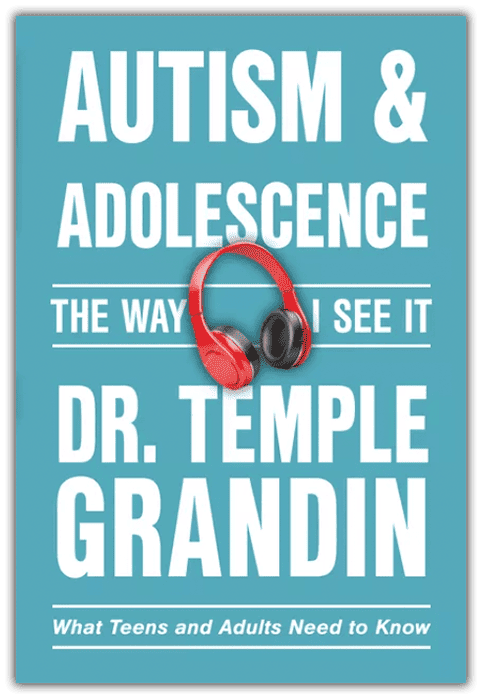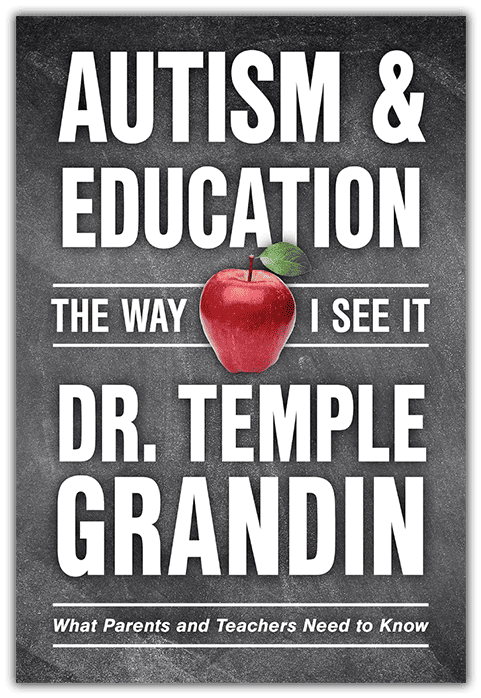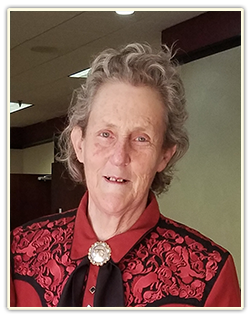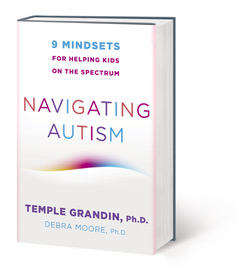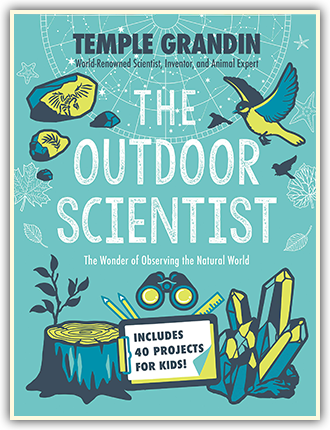
ASK TEMPLE!
Click "Ask Temple" to submit a question and it will be sent to Temple! She will answer as many as she can.
Webinars & Conferences
Upcoming Conferences
July 29 - Denver, CO
August 14 - Hershey, PA
August 18 - Webinar
August 20 - New Orleans, LA
August 23 - Flint, MI
September 10 - Dallas Forth Worth
September 11 - Knoxville, TN
September 15 - Missoula, MT
September 19 - Cincinnati, OH
November 19 - Memphis, TN
November 20 - Jonesboro, AR
Temple's Latest Books!
A MUST LISTEN!!
Temple Grandin earns Dole Leadership Prize!
NAVIGATING AUTISM
"The Outdoor Scientist"
Raj Mathai Sits Down With Temple Grandin
Autism Does Not Define Me
I live in two worlds. I am a scientist and college professor first and a person with autism second.
One day I am visiting the engineering campus of a university, and the next day I am at an autism conference. What I have learned from this is that many technical and creative people are often undiagnosed autism spectrum, Asperger, dyslexia, or have learning problems. Many of these successful individuals are aged 40 and older. They are in good jobs, and they have succeeded because their sense of identity is as a statistician, artist, computer programmer, musician, engineer or journalist.
Read the rest of this amazing article now!
Advice To Parents Autistic Children
“When you got a young child that is not talking, the worst thing you could do is nothing,” said Grandin. “What you need to do is get some grandmothers, get some students to work with this child, because nothing is the worst thing you could do. Teach them how to play board games taking turns, teach them words, take them out on nature walks, just interact with them.”
What Autistic People Do To Feel Calmer
There is a slang word that people in the autism community use to describe the noises and movements they sometimes make to feel calmer. That word is "stimming" and it's short for the medical term self-stimulatory behaviours - a real mouthful.
Stimming might be rocking, head banging, repeatedly feeling textures or squealing. You'll probably have seen this in people with Autism Spectrum Disorder (ASD) but not really wanted to ask about it. There are many reasons why people with Autism stim but world-renowned animal behaviourist Temple Grandin says most people stim simply because it feels good.
Read the rest of this informative article now!
The Amazing Mind of Autism Advocate Temple Grandin
Why Smart Humans Do Stupid Things
Humans, I’ve noticed, make a very big deal out of a quality you call intelligence. You not only take pride in it as a species, you also devise all manner of tests in an effort to sort and rank and categorize people by intelligence.
Look at how confused you were during the accident at the Fukushima nuclear plant a couple of years ago. The people who designed the plant probably had high scores on tests of IQ and math skills. And then they put the backup power generator in a basement where it was going to be useless in a flood—just when they would need it most. And all the humans shook their heads and asked, how can smart people be so stupid?
Read the rest of this great article now!
I Like The Way I Think
Temple Grandin explains why getting young people with Autism into the workforce is vital.
Hope For Math-Challenged Scientists?
Shock and outrage were bound to follow when the famous biologist-writer E.O. Wilson proclaimed that many scientists are at best "semiliterate" in math. When this heresy appeared in an op-ed piece for the Wall Street Journal, Slate responded with the bluntly headlined, Don't Listen to E.O. Wilson and the Huffington Post with Why E.O. Wilson is Wrong.
Wilson's work on ant colonies revolutionized the scientific understanding of cooperative behavior. Two of his books have won Pulitzers. He's well repsected, but in some circles, math is revered. A favorite buzzword is STEM – for Science, Technology, Engineering and Math combined in an indivisible unit. Pulling them apart, according to today's thinking, is like trying to tear the quarks out of protons.
Temple Grandin Earns Top Honor!
Temple Grandin, the Colorado State University professor world-renowned for using insights gained from autism to design humane livestock-handling systems, will be honored by the National 4-H Council with its Distinguished Alumni Medallion during a gala event in New York on Thursday.
The annual National 4-H Council Legacy Awards Gala is the organization's premier fund-raising event, honoring corporations and individuals who have made lasting contributions in support of millions of 4-H youth.
Learn more about Temple's honor here!
A Conversation With Temple Grandin
Dr. Temple Grandin sat down with the SEEN the SouthEast Education Network to discuss autistic students and the challenges for educators as they attempt to meet the needs of the growing autistic population. Temple Grandin offers her experience and insight in this highly informational interview.
